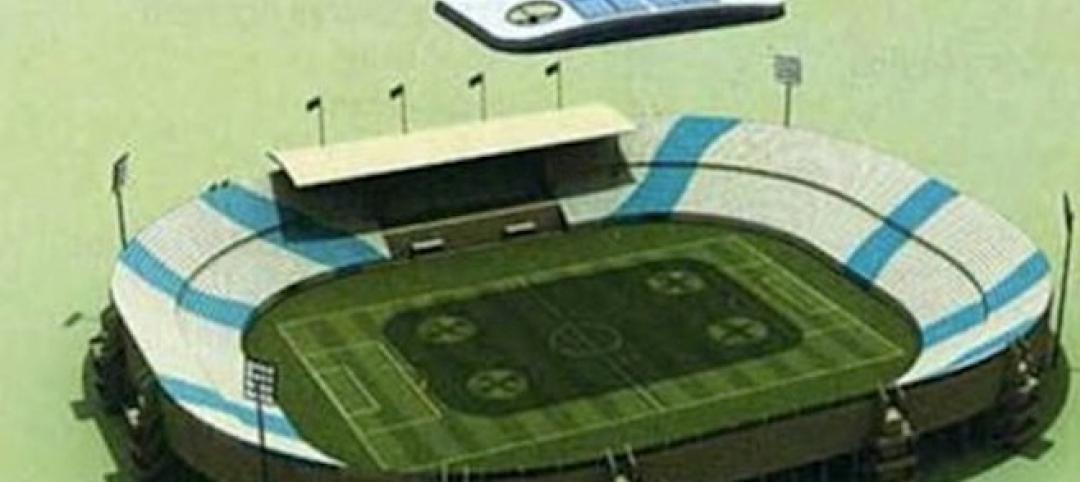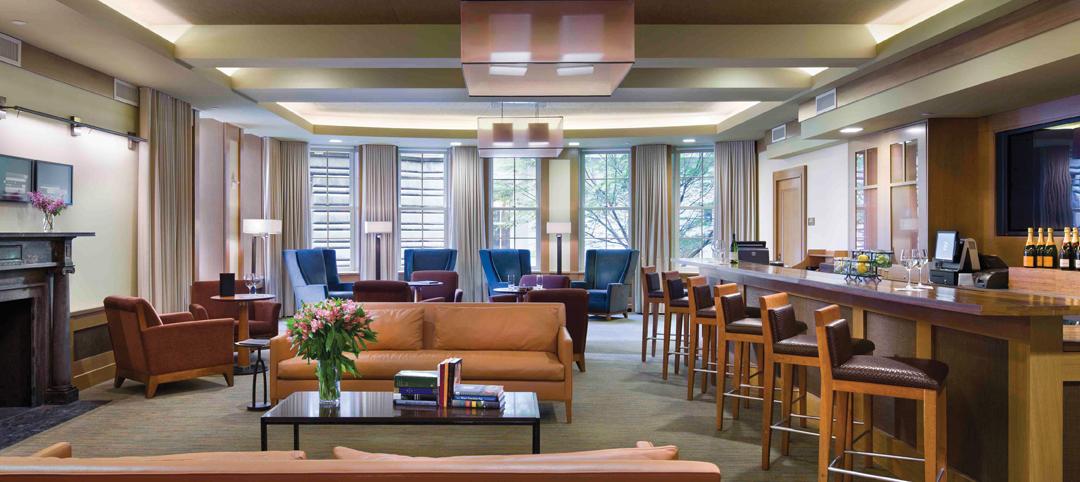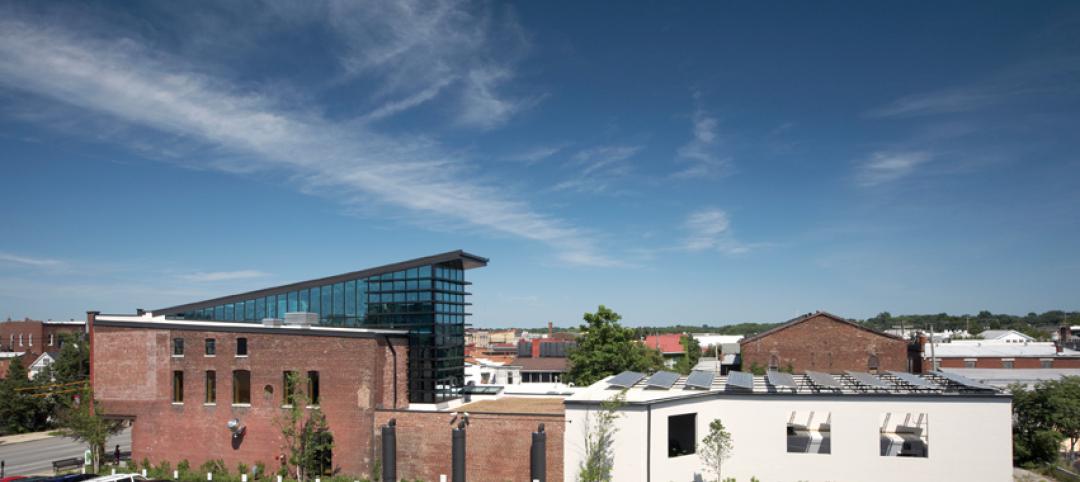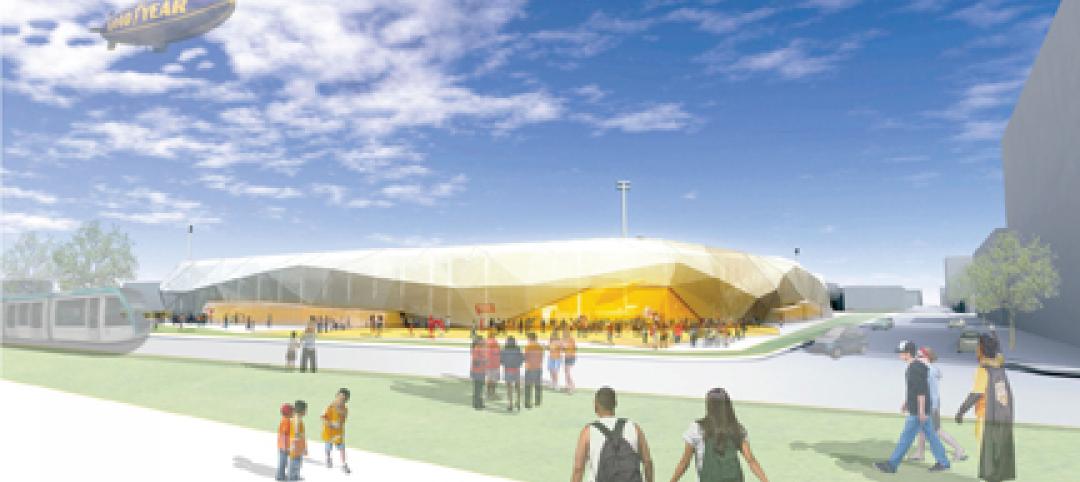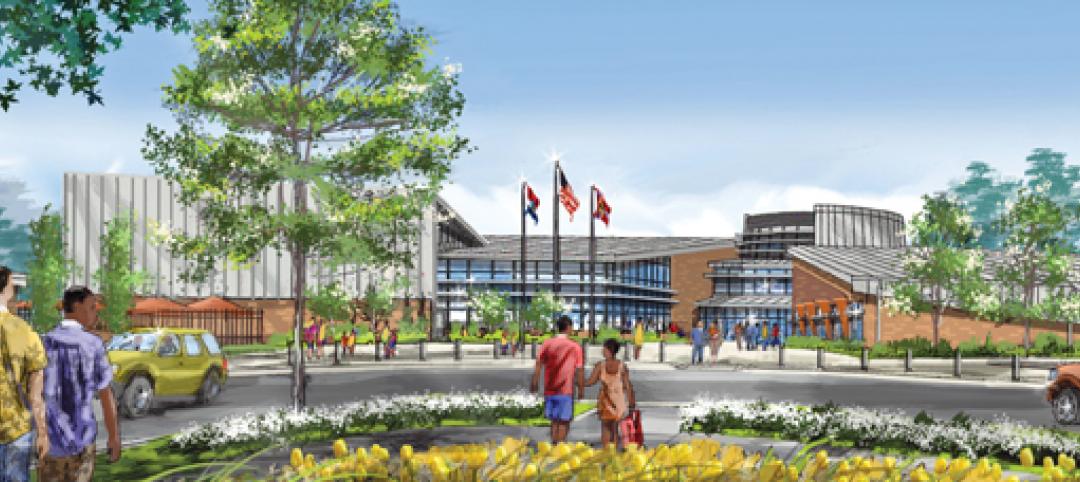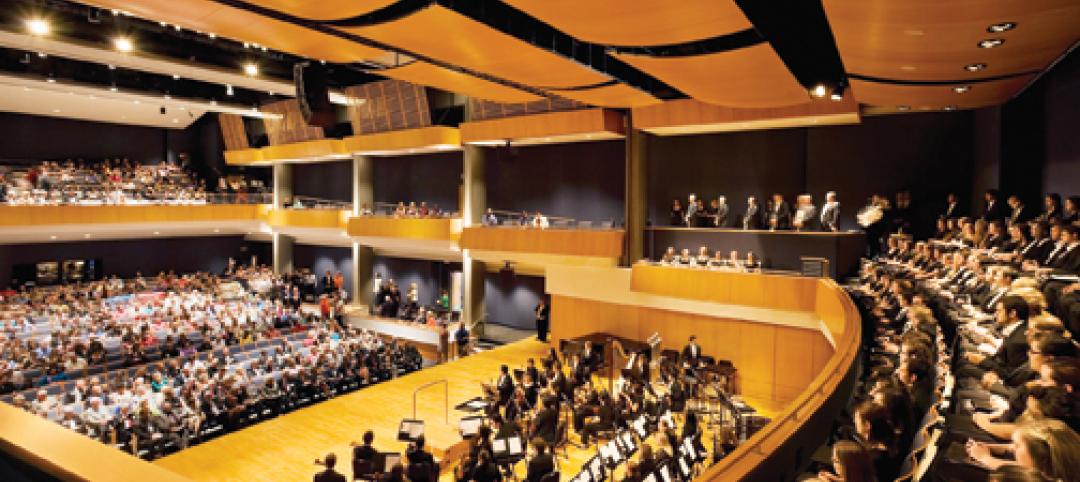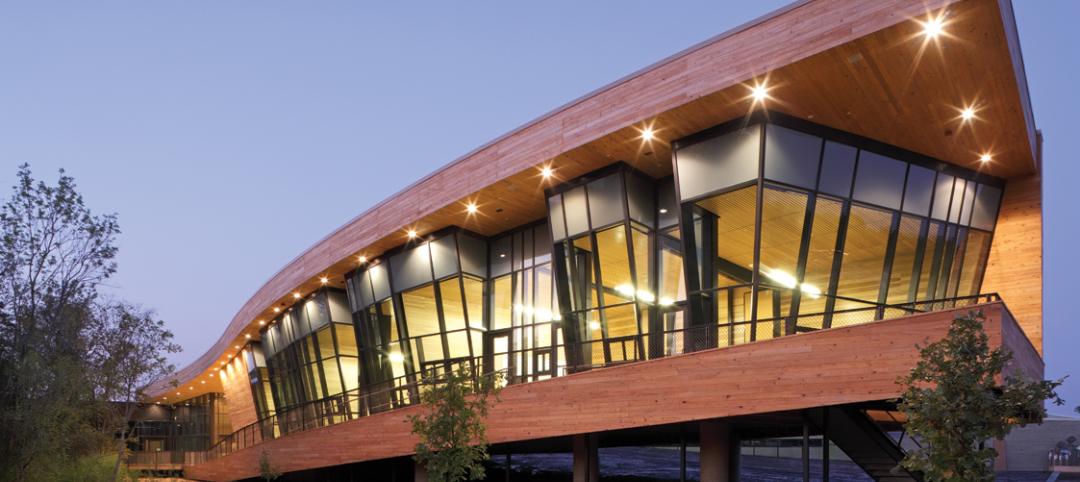After a decade and a half of downturn, Chicago envisions a new boom period for its South Loop convention center district. The Metropolitan Pier and Exposition Authority, known as McPier, is revamping McCormick Place, adding a hotel and arena through a $650 million McCormick Place Event Center expansion project.
Gensler designed the hotel, the 1,200-room, $450 million Marriott Marquis. The arena, designed by Pelli Clarke Pelli, is a basketball venue for DePaul, the city’s Division-I college hoops team. McPier funded a study that says the new buildings could generate $250 million in spending per year.
That figure, though, is fairly optimistic. The Chicago Tribune reports that experts are doubting the project, saying that the investments will ultimately cost taxpayers.
The McPier study has a few faulty assumptions. One, it is based on DePaul averaging nearly 10,000 fans a game, almost triple its current attendance. Two, McPier plans on using the arena for conventions, but studies have said that arenas are poor hosts for conventions due to their fixed seating. If the arena struggles to make money either in terms of basketball or conventions, then the hotel will have to make up that difference.
Stadiums have been found to be unsuccessful drivers of economic growth, which is an issue because McPier has already borrowed hundreds of millions of dollars and maxed out its debt limit.
"It was a dumb idea when it was proposed, it was a dumb idea when they approved it, and it will be a dumb idea in the future," Marc Ganis, a Chicago consultant who specializes in sports, said in the Tribune piece.
The Tribune has much more detail on the project, which is set to open in 2017.
Several issues have arisen with concerning the development over the last few years, including eminent domain battles, rising construction costs, and disagreements over $55 million in tax increment financing (TIF) funds.
Related Stories
| Apr 11, 2011
Wind turbines to generate power for new UNT football stadium
The University of North Texas has received a $2 million grant from the State Energy Conservation Office to install three wind turbines that will feed the electrical grid and provide power to UNT’s new football stadium.
| Mar 25, 2011
Qatar World Cup may feature carbon-fiber ‘clouds’
Engineers at Qatar University’s Department of Mechanical and Industrial Engineering are busy developing what they believe could act as artificial “clouds,” man-made saucer-type structures suspended over a given soccer stadium, working to shield tens of thousands of spectators from suffocating summer temperatures that regularly top 115 degrees Fahrenheit.
| Mar 11, 2011
Historic McKim Mead White facility restored at Columbia University
Faculty House, a 1923 McKim Mead White building on Columbia University’s East Campus, could no longer support the school’s needs, so the historic 38,000-sf building was transformed into a modern faculty dining room, graduate student meeting center, and event space for visiting lecturers, large banquets, and alumni organizations.
| Feb 23, 2011
London 2012: What Olympic Park looks like today
London 2012 released a series of aerial images that show progress at Olympic Park, including a completed roof on the stadium (where seats are already installed), tile work at the aquatic centre, and structural work complete on more than a quarter of residential projects at Olympic Village.
| Feb 11, 2011
Kentucky’s first green adaptive reuse project earns Platinum
(FER) studio, Inglewood, Calif., converted a 115-year-old former dry goods store in Louisville, Ky., into a 10,175-sf mixed-use commercial building earned LEED Platinum and holds the distinction of being the state’s first adaptive reuse project to earn any LEED rating. The facility, located in the East Market District, houses a gallery, event space, offices, conference space, and a restaurant. Sustainable elements that helped the building reach its top LEED rating include xeriscaping, a green roof, rainwater collection and reuse, 12 geothermal wells, 81 solar panels, a 1,100-gallon ice storage system (off-grid energy efficiency is 68%) and the reuse and recycling of construction materials. Local firm Peters Construction served as GC.
| Jan 21, 2011
Music festival’s new home showcases scenic setting
Epstein Joslin Architects, Cambridge, Mass., designed the Shalin Liu Performance Center in Rockport, Mass., to showcase the Rockport Chamber Music Festival, as well at the site’s ocean views.
| Jan 20, 2011
Houston Dynamo soccer team plans new venue
Construction is scheduled to begin this month on a new 22,000-seat Major League Soccer stadium for the Houston Dynamo. The $60 million project is expected to be ready for the 2012 MLS season.
| Jan 20, 2011
Construction begins on second St. Louis community center
O’Fallon Park Recreation Complex in St. Louis, designed by local architecture/engineering firm KAI Design & Build, will feature an indoor aquatic park with interactive water play features, a lazy river, water slides, laps lanes, and an outdoor spray and multiuse pool.
| Dec 17, 2010
Sam Houston State arts programs expand into new performance center
Theater, music, and dance programs at Sam Houston State University have a new venue in the 101,945-sf, $38.5 million James and Nancy Gaertner Performing Arts Center. WHR Architects, Houston, designed the new center to connect two existing buildings at the Huntsville, Texas, campus.
| Nov 2, 2010
Cypress Siding Helps Nature Center Look its Part
The Trinity River Audubon Center, which sits within a 6,000-acre forest just outside Dallas, utilizes sustainable materials that help the $12.5 million nature center fit its wooded setting and put it on a path to earning LEED Gold.



